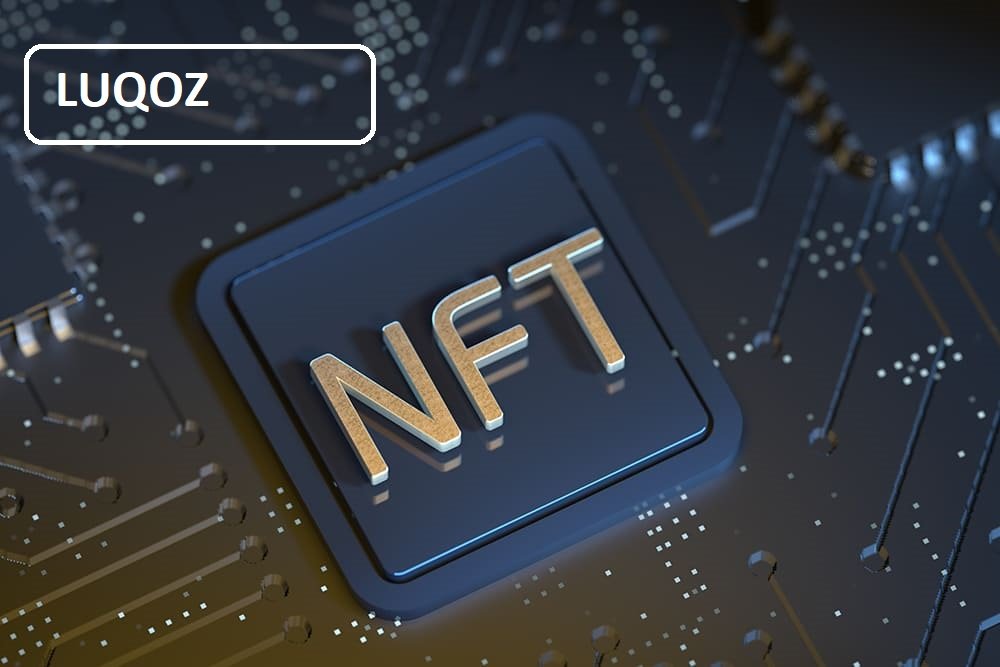Cryptocurrency in the UK: Everything You Need to Know About Digital Assets, Regulation, and Future Opportunities
Why Cryptocurrency Matters in the UK Today
Cryptocurrency is no longer just a buzzword in global finance – it’s becoming part of everyday conversations in the UK. From Bitcoin payments in London coffee shops to UK regulators setting rules for digital asset exchanges, cryptocurrency is shaping the way people invest, trade, and even think about money. For British investors, entrepreneurs, and curious readers, understanding cryptocurrency is about more than buying tokens – it’s about staying informed in a rapidly evolving financial landscape.
In this guide, we’ll explore cryptocurrency in the UK with a focus on how digital assets work, their benefits and risks, UK laws and regulations, popular exchanges, and long-term investment opportunities. Whether you’re a beginner asking “What is cryptocurrency?” or an experienced trader looking for insights into the UK market, this article will give you clarity and confidence.
What is Cryptocurrency and How Does it Work in the UK?

Cryptocurrency is a digital currency secured by advanced cryptography, which makes it extremely difficult to counterfeit, duplicate, or manipulate. Unlike traditional fiat money issued by central banks or governments, cryptocurrencies are decentralised digital assets that run on a revolutionary technology called blockchain. This decentralisation is one of the biggest differences between cryptocurrency and the British pound, as there is no single institution such as the Bank of England controlling its supply or circulation.
For UK investors and everyday users, the rise of cryptocurrency represents a new financial system that is borderless, transparent, and accessible to anyone with an internet connection. Over the past decade, awareness and adoption have grown rapidly across the UK thanks to popular digital currencies such as Bitcoin (BTC), Ethereum (ETH), Ripple (XRP), and stablecoins like Tether (USDT).
How Cryptocurrency Works in Practice
At its core, cryptocurrency relies on several fundamental principles that make it unique:
- Blockchain technology – Every transaction is recorded on a decentralised digital ledger, which is public, transparent, and virtually impossible to alter without network approval.
- Cryptographic security – Complex algorithms and encryption protect each transaction, ensuring it cannot be hacked or manipulated without majority consensus.
- Decentralisation – Unlike the pound sterling, which is issued by the Bank of England, cryptocurrencies are maintained by a network of computers across the globe, making them resistant to government interference or single-point failure.
- Accessibility and flexibility – UK investors can buy, sell, and trade cryptocurrencies 24/7 through regulated crypto exchanges, unlike stock markets that have fixed opening and closing hours.
Why Cryptocurrency Appeals to the UK Market
For many in Britain, the attraction of cryptocurrency lies in its ability to offer borderless digital payments, alternative investment opportunities, and a potential hedge against inflation. In times of economic uncertainty, where inflation rates can weaken traditional savings, cryptocurrencies like Bitcoin are often seen as a store of value or “digital gold.”
Additionally, cryptocurrency enables faster and cheaper cross-border transactions compared to traditional bank transfers, a factor that appeals strongly to the UK’s globalised economy. With the Financial Conduct Authority (FCA) providing oversight for exchanges and wallets, UK crypto investors are gaining more confidence that digital assets can be used not just for speculation but as part of a legitimate, regulated financial system.
In short, cryptocurrency is more than just a passing trend in the UK. It is reshaping how people think about money, security, and financial independence, while offering new ways to invest and transact beyond the limitations of traditional banking.

Why is Cryptocurrency Popular in the UK?
The UK has quickly established itself as one of Europe’s most active centres for cryptocurrency trading and blockchain innovation. From London-based fintech startups to investors in Manchester and Edinburgh, the appetite for digital assets continues to grow across the country. The reasons behind this popularity are both financial and cultural, and they show why Britain is becoming a leader in the global crypto economy.
Investment Opportunities in the UK Crypto Market
For many British investors, cryptocurrency represents a high-growth alternative to traditional assets such as stocks, bonds, or savings accounts. With interest rates and inflation creating uncertainty, digital currencies like Bitcoin (BTC) and Ethereum (ETH) have attracted UK investors looking for long-term wealth building, portfolio diversification, and the chance to benefit from market volatility. While crypto investments come with risks, the potential for higher returns compared to conventional markets has been a major driving force.
London’s Role as a Global FinTech and Blockchain Hub
London has long been considered the financial capital of Europe, and this reputation extends into the world of blockchain technology and cryptocurrency innovation. Countless startups in the UK are now developing blockchain-based payment solutions, decentralised finance (DeFi) platforms, and crypto-friendly banking services. The UK’s fintech ecosystem provides a fertile ground for innovation, which explains why cryptocurrency adoption in London and other UK cities is accelerating rapidly.
Public Awareness and Mainstream Adoption
Another reason cryptocurrency is popular in the UK is its growing visibility in mainstream culture. Media coverage, social media influencers, and endorsements by institutional players have brought crypto into the spotlight. From casual discussions about “how to buy Bitcoin in the UK” to high-profile announcements about crypto adoption by global companies, public awareness has soared. Many first-time UK investors are drawn in by the fear of missing out (FOMO) and the potential to participate in what is often described as the future of money.
FCA Regulation and Market Trust
While some countries have taken a hostile stance towards cryptocurrency, the UK has chosen to regulate rather than ban digital assets. The Financial Conduct Authority (FCA) plays a central role in supervising crypto exchanges and wallet providers, enforcing rules around Know Your Customer (KYC), Anti-Money Laundering (AML), and crypto advertising guidelines. Although regulations are strict, they have also helped to build trust among British investors, making cryptocurrency feel safer and more legitimate as an investment and payment method.
More Than Just a Speculative Asset
For many people in the UK, cryptocurrency is no longer seen as just a short-term gamble or speculative asset. Instead, it is increasingly viewed as an integral part of the future financial system, offering borderless payments, innovative financial tools, and investment strategies that were once only available to institutions. From small business owners accepting crypto payments to professional investors diversifying portfolios with digital assets, cryptocurrency in the UK is becoming a mainstream financial tool.
In summary, the popularity of cryptocurrency in the UK can be attributed to a combination of investment potential, fintech innovation, strong public interest, and regulatory clarity provided by the FCA. Together, these factors explain why Britain is leading the way in Europe’s digital currency revolution.
Cryptocurrency Regulation in the UK: FCA Guidelines and Legal Status
One of the most common questions asked by new investors is: “Is cryptocurrency legal in the UK?” The short answer is yes, but the longer answer comes with important conditions. Cryptocurrencies such as Bitcoin, Ethereum, and Ripple are perfectly legal to buy, sell, and hold in Britain. However, they are not recognised as legal tender by the UK government, which means you cannot use them as an official replacement for the British pound. Instead, crypto is treated as a digital asset, subject to rules, taxes, and oversight.
The Financial Conduct Authority (FCA) is the main regulator responsible for cryptocurrency in the UK. Its role is to protect consumers, reduce the risk of fraud, and prevent financial crime. For British investors and businesses, understanding FCA rules is essential before trading or launching crypto services.
Key FCA Guidelines for Cryptocurrency in the UK
- Legal Status – Cryptocurrencies are legal in the UK, but they do not carry the same recognition as government-issued money. You can own and trade them, but they are classified as property or assets under UK law.
- FCA Registration for Exchanges and Wallets – Any crypto exchange or wallet provider operating in the UK must be registered with the FCA. This ensures they follow strict security and compliance standards. For example, leading platforms such as Coinbase UK and eToro are FCA-approved, while unregistered foreign exchanges may not be legally safe to use.
- AML and KYC Rules – Anti-Money Laundering (AML) and Know Your Customer (KYC) procedures are mandatory. UK investors must verify their identity when signing up on crypto platforms, often by uploading documents like passports, utility bills, or driving licences. This helps combat fraud, terrorism financing, and other illicit activities.
- Crypto Advertising Regulations – In 2023, the UK tightened rules around crypto advertising. Companies promoting cryptocurrencies must present clear, fair, and non-misleading information. This prevents exaggerated promises of quick profits and ensures that UK consumers understand the risks before investing.
Balancing Safety and Accessibility for UK Investors
For investors in Britain, these regulations bring both advantages and challenges. On the positive side, FCA oversight means that scams are harder to run, and platforms must maintain certain security and transparency standards. This makes crypto trading safer than in countries with no regulatory framework.
On the other hand, stricter compliance can sometimes feel inconvenient. New users must go through lengthy verification processes, and some smaller or foreign exchanges are banned from operating in the UK if they fail to meet FCA standards.
Ultimately, FCA regulation has built a level of trust in the UK cryptocurrency market, giving British investors greater confidence that they can buy and hold digital assets in a regulated environment. While cryptocurrency may remain volatile, the UK’s legal and regulatory clarity has set the stage for responsible growth and wider adoption.
How to Buy Cryptocurrency in the UK Safely
For UK residents, getting started with cryptocurrency has never been more straightforward, but safety and compliance should always come first. The UK government and the Financial Conduct Authority (FCA) have introduced regulations to protect investors, so choosing the right platform and following best practices is essential. Below is a step-by-step guide to buying cryptocurrency in the UK safely, whether you’re interested in Bitcoin, Ethereum, or altcoins.
1. Choose a FCA-Registered Cryptocurrency Exchange
The first step is selecting a trusted, FCA-approved crypto exchange. This ensures the platform meets regulatory standards for security, Anti-Money Laundering (AML), and Know Your Customer (KYC) requirements. Popular and widely used exchanges in the UK include:
- Coinbase UK – Beginner-friendly with an easy-to-use interface.
- eToro – Offers both cryptocurrency trading and traditional assets in one app.
- Kraken – Known for advanced security and low fees.
- Binance UK – A global platform with a wide selection of coins (check local restrictions).
SEO keyword tip: Always search for FCA-registered crypto exchanges UK before signing up to avoid unregulated platforms.
2. Complete Identity Verification (KYC)
Due to strict UK crypto regulations, exchanges must verify your identity before allowing trades. This process is known as Know Your Customer (KYC) and usually involves uploading:
- A valid passport or driver’s licence
- Proof of address such as a utility bill or bank statement
- A selfie or video verification for added security
While some investors may find this step inconvenient, it’s designed to protect users from fraud and money laundering, making the market safer for everyone.
3. Deposit GBP Funds Securely
Once verified, you can fund your account with British pounds (GBP). UK exchanges typically allow:
- Bank transfers (Faster Payments) – The cheapest option with low fees.
- Debit or credit card payments – Instant but may involve higher charges.
- PayPal or e-wallets – Offered by some exchanges like Coinbase.
Depositing via FCA-regulated payment methods ensures your funds are protected, giving you peace of mind as you start investing.
4. Buy Your First Cryptocurrency
After funding your account, you can now buy cryptocurrency in the UK. Simply search for the coin you want — for example, Bitcoin (BTC), Ethereum (ETH), Ripple (XRP), or Cardano (ADA) — and choose how much GBP to convert. Beginners often start small, testing the process before committing larger amounts.
Pro tip: Many platforms allow recurring buys or “crypto savings plans,” where you can automatically purchase at regular intervals, a strategy known as pound-cost averaging. This helps reduce the impact of market volatility.
5. Store Cryptocurrency Safely in a Wallet
The final and most important step is storing your cryptocurrency securely. While you can keep coins in your exchange account, this carries risks if the platform is hacked. For maximum security, UK investors often move their holdings into:
- Hardware wallets (cold storage) – Devices like Ledger Nano or Trezor keep your crypto offline and safe from cyber threats.
- Software wallets (hot wallets) – Mobile apps or desktop wallets, convenient but slightly less secure.
Always remember: “Not your keys, not your coins.” If you want true ownership, move your crypto into a private wallet where you control the keys.
Final Thoughts on Safe Crypto Buying in the UK
By following these steps, British crypto enthusiasts can buy cryptocurrency in the UK safely and confidently. Choosing FCA-registered exchanges, verifying identity properly, using secure deposit methods, and storing coins in private wallets ensures compliance with UK regulations while protecting your investment.
Best Cryptocurrencies to Watch in the UK Market
The crypto market is huge, but some coins have stronger relevance in the UK.
- Bitcoin (BTC) – The pioneer, widely used as “digital gold.”
- Ethereum (ETH) – Powers decentralised finance (DeFi) and NFTs.
- Ripple (XRP) – Popular for international money transfers, with UK banking interest.
- Cardano (ADA) – Known for sustainable blockchain solutions.
- Stablecoins (USDT, USDC) – Pegged to fiat currency, offering stability in volatile markets.
UK investors often diversify between these high-cap cryptocurrencies and emerging altcoins.
Cryptocurrency Investment in the UK: Risks and Rewards
Like any investment, cryptocurrency has pros and cons.
Benefits:
- High potential returns compared to traditional assets.
- Decentralised and borderless, allowing global transactions.
- Increasing mainstream adoption by companies and financial institutions.
Risks:
- Price volatility – Bitcoin can swing by 10% in a day.
- Security risks – Hacks, phishing, and wallet thefts.
- Regulatory changes – UK laws may tighten further.
For UK investors, the key is risk management: diversify your portfolio, never invest more than you can afford to lose, and always use secure storage methods.
The Role of Cryptocurrency in UK Business and Finance
Cryptocurrency isn’t just for investors – it’s transforming UK businesses.
- E-commerce – Some UK online stores now accept Bitcoin and Ethereum.
- Remittances – Crypto provides cheaper, faster international transfers.
- FinTech innovation – London startups are developing blockchain-based payment solutions.
- Institutional adoption – UK hedge funds and investment firms are exploring crypto ETFs and futures.
As digital assets integrate with UK finance, the line between traditional banking and crypto continues to blur.
Tax on Cryptocurrency in the UK: What HMRC Requires
Taxation is one of the most important aspects UK investors must understand. The HM Revenue & Customs (HMRC) treats cryptocurrency as an asset, not currency.
- Capital Gains Tax (CGT) applies when you sell crypto for profit.
- Income Tax applies if you receive crypto as payment, mining rewards, or staking income.
- Investors must keep records of transactions, dates, values, and wallet addresses.
Failing to declare crypto income can result in fines, so UK investors must file taxes accurately.
The Future of Cryptocurrency in the UK
The UK is positioning itself as a global leader in fintech and digital assets. Future developments may include:
- Central Bank Digital Currency (CBDC) – The Bank of England is researching a digital pound.
- Stronger regulation to improve consumer safety.
- Increased adoption in everyday payments and e-commerce.
- Blockchain innovation driving growth in healthcare, logistics, and supply chains.
For UK investors and businesses, the future of cryptocurrency promises both opportunities and challenges.
FAQs on Cryptocurrency in the UK (Google AEO Optimised)
Is cryptocurrency legal in the UK?
Yes, cryptocurrency is legal in the UK but not recognised as legal tender. It is regulated by the Financial Conduct Authority (FCA).
Do I pay tax on cryptocurrency in the UK?
Yes. HMRC requires Capital Gains Tax or Income Tax depending on how you earn or sell crypto.
Which is the best exchange to buy crypto in the UK?
Popular FCA-registered exchanges include Coinbase, eToro, and Kraken. Always check FCA registration before using any platform.
Can businesses in the UK accept cryptocurrency payments?
Yes, UK businesses can legally accept crypto, but they must follow tax and accounting rules.
Is cryptocurrency a safe investment in the UK?
Crypto can be profitable but volatile. Safety depends on choosing secure wallets, regulated exchanges, and diversifying investments.
Conclusion: Should You Explore Cryptocurrency in the UK?
Cryptocurrency is reshaping the UK financial landscape, offering both exciting opportunities and genuine risks. Whether you’re a first-time investor buying Bitcoin or a business exploring blockchain, success depends on education, regulation compliance, and smart decision-making.
By understanding how cryptocurrency works, the role of the FCA, and the impact of taxes, you’ll be better equipped to make informed choices. The future of cryptocurrency in the UK looks bright, but like any investment, it requires caution, research, and long-term vision.





One thought on “Cryptocurrency in the UK: Everything You Need to Know About Digital Assets, Regulation, and Future Opportunities”